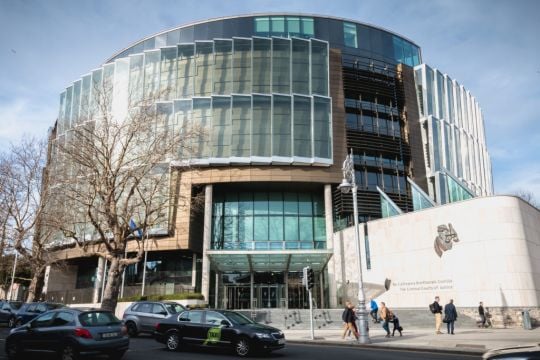A Delivery cyclist accused of murdering a schoolboy in Dublin last week can be named by the media, a judge has ruled.
Judge Victor Blake noted today that the accused, George Gonzaga Bento, and the 16-year-old boy were not known to each other, and there was no risk that naming him would identify the victim.
Secondary schoolboy
The teen suffered fatal injuries last week and was rushed to the Mater Hospital but was later pronounced dead. The secondary schoolboy cannot be identified due a recent judgment preventing the news media from identifying any deceased child victim.
Mr Bento, who is from Brazil but has lived and worked in Dublin for several years, was charged on Saturday.
He appeared at Dublin District Court later that day when Judge John Campbell made an order that his name could not be published either, to protect the identity of the victim.
He later told a solicitor for Independent News & Media that it was an interim order until the defendant’s next appearance, and the matter could be taken up then.
Court appearance
Mr Bento, a food delivery cyclist with an address at East Wall, Dublin 3, appeared before Judge Victor Blake at Cloverhill District Court today.
He was remanded in continuing custody to appear again on March 4th next for formal directions from the Director of Public Prosecutions to be obtained.
Dressed in a light brown tracksuit, Mr Bento listened to the proceedings with the assistance of an interpreter. He did not address the court.
Tom Murphy BL, for RTÉ and the national newspapers, asked the judge not to prevent the naming of the accused. The original order had been made in error and publishing his name him would not prejudice his right to a fair trial, the barrister argued.
It was accepted the child could not be identified due to reporting restrictions under Section 252 of the Children Act.
Unknown to each other
State solicitor Mairead White said the media’s application was not opposed, and she asked Detective Sergeant Shane Noone to give the court some factual background.
In evidence, he told the court that three parties were at the incident, “and none of the three were known to each other”.
“It is the investigation team’s belief, and my belief, that they were not known to each other, that they were strangers,” he said.
There were two in one group, eight to 10 in another, and one other person was the third party, he told the court.
The State solicitor said on that basis the application would not be opposed.
No objections
The media’s barrister argued that this case differed to another recently, where an adult could not be named to prevent identification of a deceased child.
“There is no link whatsoever between the accused and the deceased in this case,” Mr Murphy said, adding that, “there is no risk to the identity of the child, which I acknowledge is prohibited, there is no risk of that happening by identifying the accused”.
Barry Ward BL, for the defence, did not object.
Judge Blake said he was not renewing the order preventing identification of Mr Bento. Following a request by the defence, however, he ordered that his specific address could not be reported.
At his first hearing on Saturday, Detective Sergeant Noone said the accused had “no reply” to the murder charge and in response to the weapon allegation, he answered: “This is the charge, or this is the final decision”.
A bail application in a murder case can only be heard by the High Court. Mr Bento has not yet indicated how he will plead.
Childrens Act
As a matter of law, deceased child crime victims now must be anonymised in the same way as living child victims or witnesses in criminal proceedings.
This stems from a Court of Appeal ruling last year. It found that the anonymity provisions of the Children Act can also apply to deceased child victims of crime.
Section 252 (1) of the Children Act, 2001 states: "In relation to any proceedings for an offence against a child or where a child is a witness in any such proceedings, no report which reveals the name, address or school of the child or includes any particulars likely to lead to his or her identification”.
"No picture which purports to be or include a picture of the child or which is likely to lead to his or her identification” shall be published or included in a broadcast, it also states.
Ruling on the issue, Mr Justice George Birmingham, had said the language in this section of the legislation was "clear and unequivocal" and that if it were to be changed it would be a decision for the Oireachtas.







